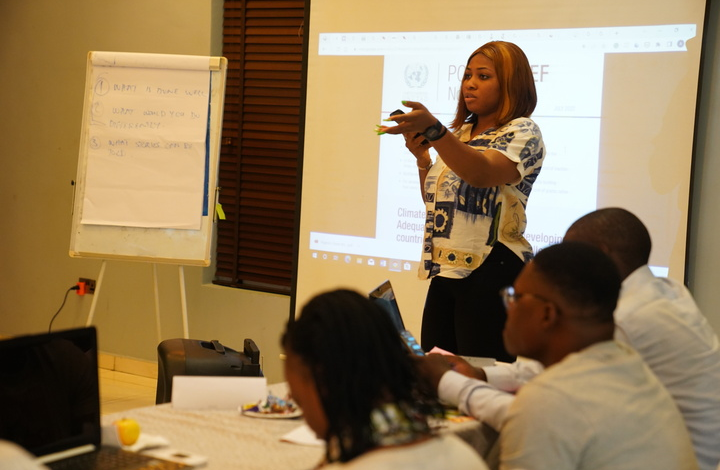CJID, CIJ Build Nigerian Journalists’ Capacity To Influence Climate Resilience
Climate change journalists will play a critical role in assessing and reporting Nigeria's climate action goals at the COP27 later in the year.

To strengthen the coverage of climate change in Nigeria, the Centre for Journalism Innovation and Development (CJID), in partnership with the Centre for Investigative Journalism (CIJ), organised a training event for Climate Change Media Fellows.
The three-day workshop took place between Aug. 15 and 17 in Lagos, one of the cities most vulnerable to rising sea levels and coastal flooding in Africa.
It provided journalists and researchers with a series of learning programmes to understand climate change science and gain the skills to curate and produce human and data-driven stories.
Climate change journalism is considered an integral part of ensuring a fair low carbon transition and investments in adaptation initiatives to support the most vulnerable, especially in Africa.
“In order for the media to fulfil its role in the drive for climate action, access to quality information and training is critical. Through this fellowship, we aim to improve the skills and capacity of journalists and, more importantly, improve the quality of conversations on climate change in the country.” said the Project Coordinator, Daniel Whyte.
Developing countries such as Nigeria are disproportionately affected by climate change-related extreme weather events despite contributing less to global carbon emissions. The impacts of these severe environmental disasters and trends, such as desert encroachment, erratic rainfall and flooding, are further amplified by existing developmental, security, and economic challenges.
According to the United Nations Intergovernmental Panel on Climate Change (IPCC) report released in the first quarter of the year, between 2010 and 2020, human deaths from extreme events, including floods, droughts and storms, were 15 times higher in very vulnerable regions compared to other parts of the world.
Similar findings have been made regarding temperature rise and other delicate thresholds. The report predicts that “the world faces unavoidable multiple climate hazards over the next two decades with global warming of 1.5°C.”
“Even temporarily exceeding this warming level will result in additional severe impacts, some of which will be irreversible,” it added.
The statement from the CJID/CIJ team acknowledged this. They highlighted the global efforts to cut emissions, stating that, currently, “the world is moving towards limiting global warming to 1.5 degrees through different climate action plans such as reduction in the fossil fuel usage, climate-smart interventions in agriculture, among others”.
An important focus of the exercise was around Nigeria’s ability to sustain a reduction in greenhouse gas emissions and make the requisite investment to harness the socio-economic potentials of the energy transition. The media’s role is essential in interrogating the process, particularly after the launched energy transition plan on Wednesday, a vital component of its net zero pathway.
Participants at the training also reviewed other commitments and policies, including the Climate Change Act and Nationally Determined Contribution (NDCs). They discussed the complexity and importance of climate finance due to its key role in determining the ability of the country to carry out mitigation and adaptation projects.
Climate change journalism would be vital for monitoring and reporting climate agreements, such as the 2022 United Nations COP27 negotiations in Egypt, alongside the impact on everyday people who are affected the most.
“We are excited by the quality of journalists and researchers in the fellowship and by their innovative ideas. We can’t wait to see the agenda-setting work they will be doing in the lead up to Africa COP27,” the Executive Director of CJID, Tobi Oluwatola, said.
Participants are expected to receive funding to develop stories and policy reviews.
“Through the training, journalists and researchers will be able to investigate and expose wrongdoing as well as craft meaningful stories on climate change-related issues,” noted CIJ Project Manager Adeolu Adekola.
Support Our Journalism
There are millions of ordinary people affected by conflict in Africa whose stories are missing in the mainstream media. HumAngle is determined to tell those challenging and under-reported stories, hoping that the people impacted by these conflicts will find the safety and security they deserve.
To ensure that we continue to provide public service coverage, we have a small favour to ask you. We want you to be part of our journalistic endeavour by contributing a token to us.
Your donation will further promote a robust, free, and independent media.
Donate HereStay Closer To The Stories That Matter




